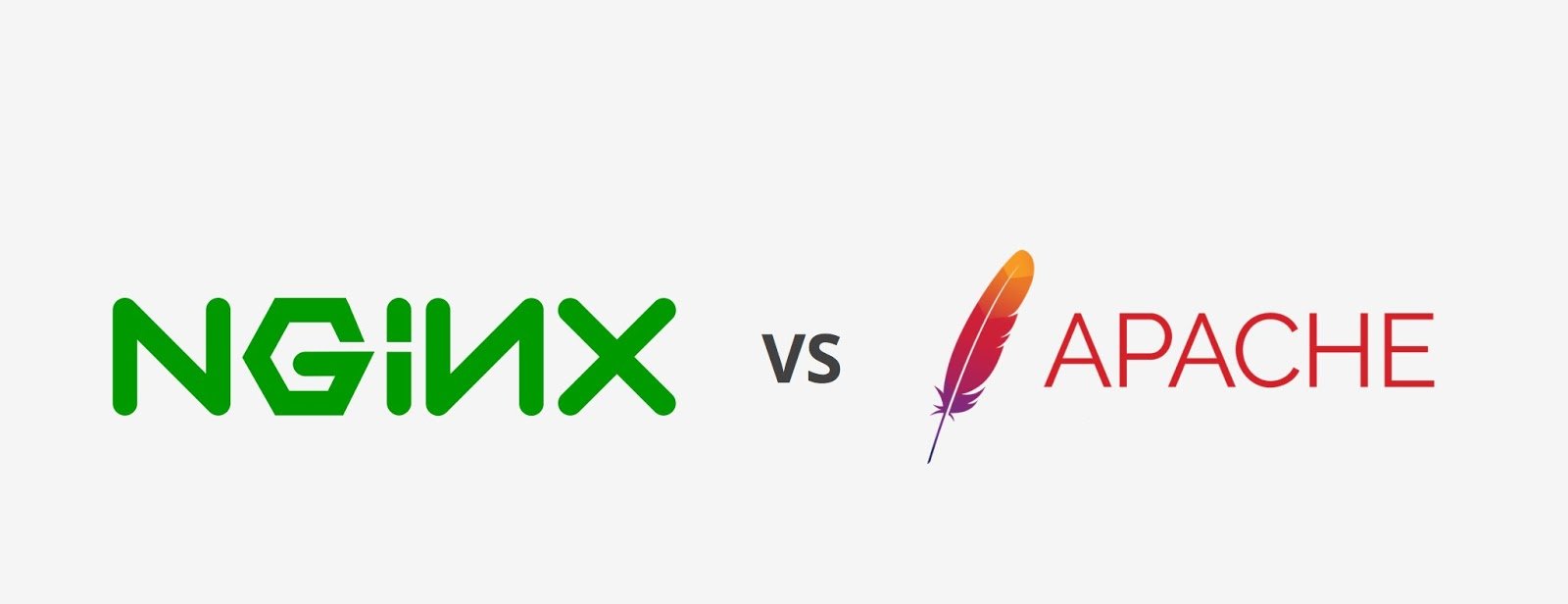There are over 1.5 billion websites worldwide, and they all need a server to run smoothly. Reliable hardware not only keeps your website online, but highly affects page load times, web security, and your ability to grow.
So today, we are going to put the two biggest players on the server market head to head.
Apache or Nginx – which one is better?
Let’s start by introducing our competitors.
What Is Apache?
Apache is an open-source server component, part of the popular LAMP stack (Linux, Apache. MySQL, PHP), often utilized in web hosting services.
Apache employs Multi Processing Modules (MPM) to extend its core functionalities. You can do pretty much anything with the right mods and rules – harden security, boost speeds, run server-side scripts.
Apache has been dominating the market for decades now, reaching as much as 70% share at peak times. But today, the #1 spot seems to be slipping away with some surveys already proclaiming a new leader – Nginx.
What Is Nginx?
Nginx was first released in 2004 but quickly gained recognition – over 500,000 websites utilize the web server technology today. The platform came as a solution to the C10K problem – managing the load of 10,000 concurrent connections.
The underlying technology is a huge part of Nginx’s wide usage in web hosting, capable of boosting server performance while lowering resource consumption.
How Does That Work?
Nginx constantly monitors the server with an AI that detects and analyzes web traffic, applying predictive measures during high loads. Thanks to its asynchronous architecture, the system is able to “take” just as much resources as it needs to handle all requests instead of keeping the entire server busy.
It’s time to take a closer look and compare Apache with Nginx to determine which one is the best for your needs.
Performance
If you have a static website, Nginx clearly has the upper hand. Benchmark tests reveal the platform is about two times faster than Apache, even more when you add more concurrent connections. The best thing is, Nginx can speed up the requests without the need for extra resources. In fact, it consumes 5-6% less RAM than Apache for static content.
The performance difference is insignificant for dynamic websites, though. Both technologies have optimization solutions for PHP-based software like WordPress, Joomla, or Drupal. Utilizing modules like PHP-FPM and FastCGI will allow you to build a fast website, regardless if it runs on Apache or Nginx.
Security
Security-wise, there is little to separate the two most popular server platforms.
With the right configurations, you can easily make Apache impenetrable. The two modules to look here are mod_security and mod_evasive. A combination of the two will help you monitor your data, mitigate brute force and DDoS attacks, blacklist IPs.
Nginx gives the utmost attention to security as well. You can find extensive documentation on how to keep your website well-protected:
- Configuring SSL certificates
- Restricting user access
- Setting up authentication
- Capping the bandwidth
- Securing HTTP traffic
- Dynamic IP blacklisting
Nginx’s code base is smaller and better optimized than Apache’s, giving it a slight edge in the Security department.
Support
Web server management is no easy task, especially if you lack the experience or know-how. Most of the support documentation for both Apache and Nginx is dev-oriented. Sure, there is plenty of helpful information to go around…if you know what you’re doing.
As for live assistance, both server platforms rely mainly on community support. Nginx does offer in-house developers to help with technical issues, but it’s a paid service and quite costly too.
But unless you’re looking to run the whole operation yourself, you can always trust a good hosting provider to take care of the technicalities. We’ve found Scala Hosting’s Managed Cloud VPS to do just that, letting the client focus on business growth instead of learning how to become a server admin.
Conclusion
Apache is an all-round great server solution, but we can see why Nginx is getting more popular by the day. We are talking about a stellar platform that can easily turn into a proxy server, load balancer, or HTTP cache.
While similar in many aspects, Nginx handles static content much better, guaranteeing optimal server speeds and efficient resource consumption.
Still having doubts which solution might be better for you?
Check out this detailed Apache vs Nginx comparison from our friends of Scala Hosting.



